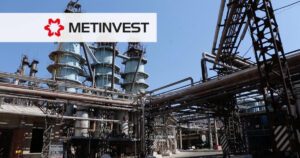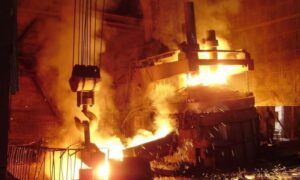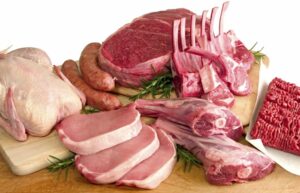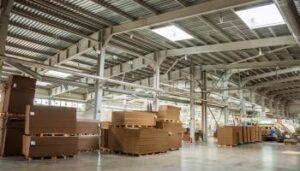
Ukraine’s largest producer of coking coal, PrJSC Pokrovske Coal, intends to increase production of coking coal by 2024 and process it into coal concentrate by 4.1 million tonnes, Kostiantyn Vialy, director of the coal directorate at the managing company of Metinvest Group, said.
According to him, 2021 was not an easy and difficult year for the company, however, it was possible to achieve fairly high production volumes.
“Albeit not at the level that was planned. We have something to be proud of and, we can say that we managed to create a reliable guarantee of success and stability in the future. Last year we passed a very good investment program for 2022. We are planning a powerful mining upgrade – mine equipment for sinkers. At the end of February, we expect the delivery of two Chinese-made combines. We plan to purchase two more combines at the end of the year. As for the overhaul, one combine has already been received, two more are ready to be sent to the plant,” Vialy said in an interview with a corporate publication.
At the same time, he expressed the hope that a certain breakthrough in the pace of mining will be achieved this year, which will make it possible to significantly increase the “cleaning front” and production volumes in the future.
At the same time, he added that the first suspended battery locomotive is being tested in the mine today – compared to diesel, it does not produce noise and exhaust gases. In the future, it is planned to gradually update the mine transport. This requires considerable investments, but if you look at the issue taking into account the prospects, they will definitely pay off – if not today, then tomorrow.
Answering a question about the problem with personnel, he noted that the shortage of personnel is a problem of the entire labor market, which has been observed for many years.
Speaking about the future of the company, the director stressed that the vision is positive and successful.
“With the support of Metinvest, we are developing production, building new blocks, improving labor safety, the professional level of our employees. Our plans are large-scale. It is important for us to provide intra-group assets that are part of Metinvest with our coal. We plan to reach the peak of mine workings in 2024, which will increase production and produce concentrate in the amount of 4.1 million tonnes,” the head of the coal directorate said.

Oleksiy Kovalenko, co-owner of PJSC Volodymyr-Volynska Poultry Farm (Volyn region), has canceled the license for the production of chicken at this enterprise under the Epikur brand due to disagreements with another co-owner of the company, Mykhailo Dobkin.
“I am withdrawing my Epikur from shelves. Otherwise, your money will increase the threat of war for you! The question is in Mykhailo Dobkin, who recently became a shareholder of the Volodymyr-Volynska poultry farm. Before he appeared I established the production of chicken without antibiotics and any rubbish under TM Epikur under my license and with my “epi-team,” Kovalenko wrote on Facebook.
Earlier, in an interview with Forbes, he said that the brothers Mykhailo and Dmytro Dobkin inherited 33% each in the charter capital of the company after the death of their father Mark Dobkin, after which the shareholders had divided views on doing business. He said that as of the beginning of February of this year, Kovalenko and his family owned 34% of the company’s shares, while Dobkins owned 66%.
“From recent publications and appeals from investigative journalists, I know that Dobkin is no longer just about toxic rhetoric, but about criminal cooperation with the “LPR”/Russia. Not words, but deeds. So cynical in relation to Ukraine that I immediately put an end to Volodymyr-Volynska poultry farm regarding Epikur. At the same factory, Dobkin produces the usual brand – Chebaturochka. I do not influence him, here everyone can vote with their wallet,” Kovalenko said.
He said that the production of chicken meat under the Epikur brand at the poultry farm was stopped.
“With the appearance of Dobkin among the shareholders, I began to take steps not to deal with him. It was supposed to introduce Epikur technologies in other industries and transfer production and supplies. So I’m acting in this way… but I can’t wait in such a situation,” he wrote.
In addition, Kovalenko promised to take factory employees into his team, who will decide to quit or be fired by its management.
Blogger Miroslav Gai wrote on Facebook early February of this year that Mykhailo Dobkin supplies chicken to the territory of the self-proclaimed “LPR” and “DPR.”
“The former mayor takes the finances for his own information campaign from the Volodymyr-Volynska Poultry Farm, which is controlled by the prosecutor’s office. It is the one that the prosecutor’s office suspects of illegally receiving UAH 34 million in budget support. It is the one that transferred poultry for millions of U.S. dollars to the eponymous firm (Volodymyr-Volynska Trade Company) from Kharkiv, which is headed by the way, by a resident of the so-called “LPR,” the blogger wrote on the social network.
PrJSC Volodymyr-Volynska Poultry Farm is a Ukrainian-Dutch enterprise, one of the five largest producers of chicken meat in Ukraine, occupying about 6% of the market.

Based on the results of the work of metallurgical enterprises in January of this year, Ukraine increased steel production by 0.7% compared to the same period in 2021, being 13th in the ranking of 64 countries – the world’s main producers of this product, compiled by the World Manufacturers Association steel (Worldsteel).
According to Worldsteel data released on Tuesday, in January 2022, a decrease in steel production was recorded by January 2021 in most countries of the top ten, except for India, the United States, Russia and Iran.
The top ten steel-producing countries in January was as follows: China (81.685 million tonnes, a decrease of 11.2% compared to January 2021), India (10.781 million tonnes, an increase of 4.7%), Japan (7.758 million tonnes, 2.1% less), the United States (7.266 million tonnes, 4.2% more), Russian Federation (6.570 million tonnes, 3.3% more), South Korea (5.980 million tonnes, 1.1% less), Germany (3.259 million tonnes, 1.4% less), Turkey (3.161 million tonnes, 7.8% less), Brazil (2.883 million tonnes, 4.8% less) and Iran (2.8 million tonnes, 20.3% more).
This is followed by Taiwan (China, 2.040 million tonnes, an increase of 2.2%), Vietnam (1.875 million tonnes, a decrease of 4.1%), Ukraine (1.851 million tonnes, 0.7% more), Mexico (1.520 million tonnes, 2.5% less) and Italy (1.5 million tonnes, 20.8% less).
In general, in January of this year, steel production decreased by 6.1% compared to the same period last year, to 155.030 million tonnes.

Sales of meat for slaughter in Ukraine (in live weight) in January of this year decreased by 1.5% compared to January 2021, to 307,300 tonnes, milk production – by 1.5%, to 522,100 tonnes, and eggs – by 8.1%, to 934.6 million pieces.
According to the website of the State Statistics Service, as of February 1, 2022, the total number of poultry in Ukraine increased by 0.7% compared to the same date last year, to 193.9 million birds. The number of pigs decreased by 3.4%, to 5.56 million animals, cattle – by 6.5%, to 2.7 million animals (including the number of cows – by 6.6%, to 1 .55 million animals), and sheep and goats – by 3.3%, to 1.09 million animals.
As of the indicated date, the number of cattle and pigs in the households of the population decreased the most – to 1.7 million animals of cattle (9.7% less versus February 1, 2021) and 1.92 million pigs (7.5% less). At the same time, by February 1, 2022, the country recorded an increase in the number of poultry at agricultural enterprises by 2.9%, to 110.9 million birds, and sheep and goats – by 8%, to 165,000 animals.
The population of cows at agricultural enterprises also increased by 0.2%, to 423,700 animals, while the total number of cattle decreased by 0.5%, to 1 million animals.
Sales of poultry for slaughter by agricultural enterprises in January 2022 increased by 3.8% compared to January a year earlier, to 56.96 million birds, sheep and goats – by 60.2%, to 3,700 animals, while sales of pigs decreased by 10.5%, to 0.35 million animals, and cattle – by 0.4%, to 23,100 animals.
Sales of eggs by agricultural enterprises for the specified period decreased by 12.3%, to 570,000 pieces, while the households reduced their sales by 1.4%, to 360,900 pieces.
The State Statistics Service specified that in January of this year, Kyiv region became the leader in production of eggs – 241.1 million eggs (9.3% less compared to January 2021), Khmelnytsky region – 68.6 million pieces (5.2% more), Dnipropetrovsk region – 56.1 million pieces (9.7% less) and Cherkasy region – 52.1 million pieces (13.7% less).
According to the statistics service, in January of this year, Ukrainian agricultural enterprises increased milk production by 6.9% compared to January last year, to 243,300 tonnes, while its production by households decreased by 7.8%, to 278,800 tonnes.
Most milk was produced in Poltava region – 50,900 tonnes (0.2% less), Vinnytsia region – 45,100 tonnes (7.8% less), Khmelnytsky – 40,000 tonnes (2.8% more), as well as Kharkiv and Cherkasy regions – by 34,000 tonnes (more by 2.1% and 2.7% respectively).

The volume of commercial output of Kyivsky cardboard paper mill (Obukhiv, Kyiv region), the leader in the pulp and paper industry in sales, grew by 42.4% in January compared to the same month in 2021, to UAH 668 .31 million.
According to the statistics of the UkrPapir association, provided to Interfax-Ukraine, at the same time, in kind, only the production of base paper for sanitary and hygienic products showed a slight increase (by 1%), to 7,570 tonnes.
The mill reduced the production of corrugated packaging by 7.5%, to 15.65 million square meters, cardboard – by 6.4%, to 17,830 tonnes (including container increased by 2.8% to 12,130 tonnes, boxboard reduced by 21.3% – to 5,700 tonnes.
Production of toilet paper in rolls fell by 8.2% to 33.19 million pieces.
According to the association, in general, enterprises of the industry in January 2021 increased the production of corrugated packaging by 3.5%, to 48 million square meters, paper and cardboard were reduced by 4.6%, to 64,000 tonnes, toilet paper production in rolls was reduced by 8.5%, to 54.65 million pieces.
Kyivsky cardboard paper mill is one of the largest enterprises in Europe for the production of cardboard and paper products with a staff of about 2,200 people. Products are sold to almost 700 companies in Ukraine, a number of CIS countries and far abroad.
As reported, the mill intends to invest up to EUR 20 million in the development of a new industrial site in Verkhniodniprovsk (Dnipropetrovsk region) for the production of corrugated products.

Malt production in Ukraine in January grew by 10.8%, to 18,600 tonnes.
Malt production in 2021 amounted to 218,500 tonnes, which is 19.5% less than in 2020.
At the same time, the year before last, its production decreased by 18% compared to 2019, to 275,000 tonnes.